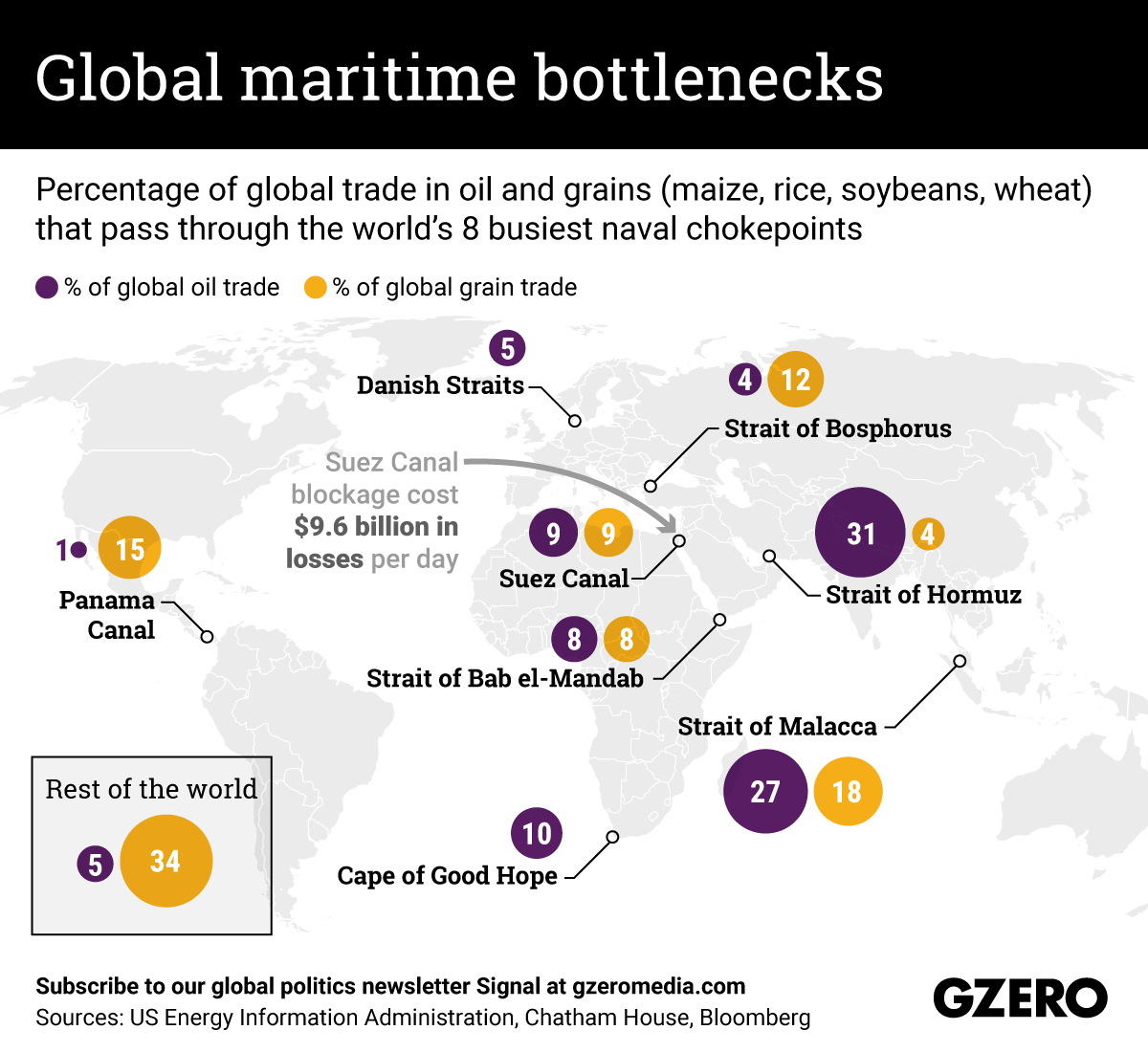March 29, 2021
Traffic finally resumed on Monday in the Suez Canal, almost a week after a massive container ship ran aground, causing a logjam of hundreds of vessels on either end of the busy waterway. The recent disruption in the Suez — which links the Mediterranean to the Red Sea via Egypt and accounts for 10 percent of global maritime shipping volume — has caused significant damage to global supply chains already overstretched by rising demand due to the pandemic. Analysts say that the disruption from the delays could still have an impact for several weeks. But this canal is just one of a host of naval chokepoints worldwide. We take a look at the busiest maritime bottlenecks, along with their share of global trade in oil and grains.
From Your Site Articles
- OVER THE TOP: ARCTIC SHIPPING LANES - GZERO Media ›
- QUAD supply chain strategy to consider values; new AI-powered weapons - GZERO Media ›
- Want to help poor countries now? Open your markets to their farmers, World Bank chief tells wealthy nations - GZERO Media ›
- How did we get to today's supply chain mess? - GZERO Media ›
- The shipping container shortage that’s wreaking havoc on the global supply chain - GZERO Media ›
More For You
Most Popular
Think you know what's going on around the world? Here's your chance to prove it.
PA via Reuters Ukraine's Vladyslav Heraskevych, with his helmet, which features pictures of people killed in the war with Russia. Heraskevych was ruled out of the Men's Skeleton event by the International Olympic Committee just over an hour before competition began, pictured at the Cortina Sliding Centre, on day six of the Milano Cortina 2026 Winter Olympics, Italy. Picture date: Thursday February 12, 2026.
20: The number of fallen Ukrainian athletes and coaches depicted on a Ukrainian skeleton racer’s helmet at the Winter Olympics, which prompted the International Olympic Committee (IOC) to disqualify him on Thursday.
Russian President Vladimir Putin attends his annual end-of-year press conference and phone-in in Moscow, Russia December 19, 2025.
Sputnik/Alexander Kazakov/Pool via REUTERS
The Russian government has begun blocking the popular messaging apps WhatsApp and Telegram in a sweeping crackdown aimed at forcing Russians to use a state-backed alternative called MAX, which critics say would enable censorship and surveillance.
© 2025 GZERO Media. All Rights Reserved | A Eurasia Group media company.
